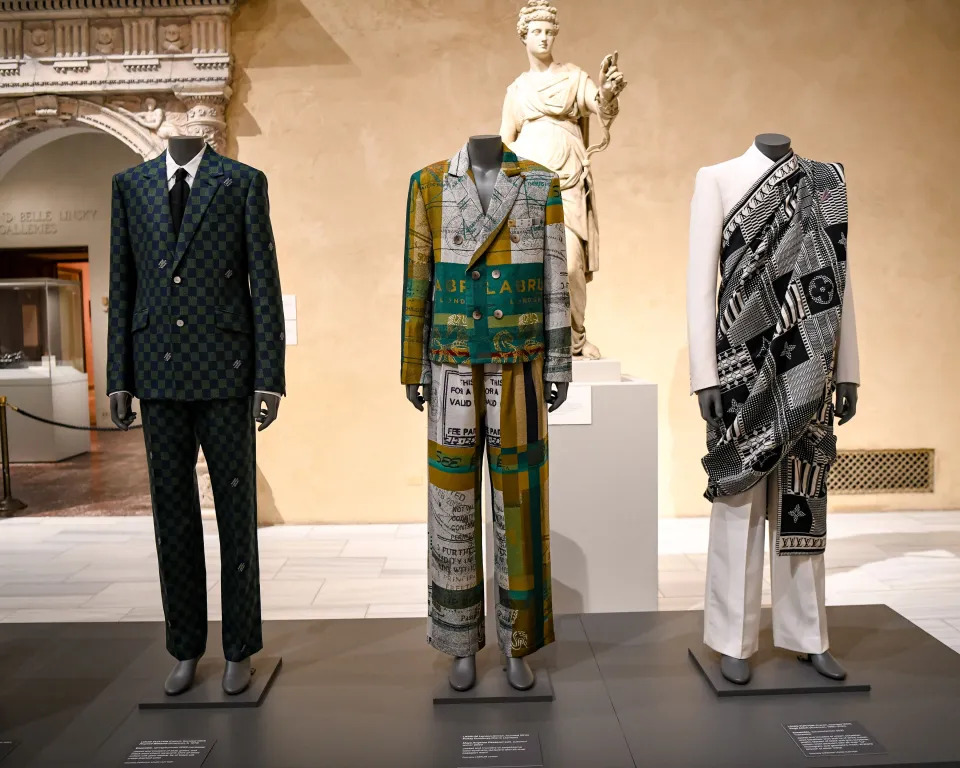
The Met Gala finally has a good theme…but at what cost?
By Brooklyn Mori, November 29 2024—
The Met Gala 2025 has announced its theme, “Superfine: Tailoring Black Fashion,” which explores Black dandyism from the 18th century to the present. The event will be guest-curated by Monica Miller, author of Slaves to Fashion: Black Dandyism and the Styling of Black Diasporic Identity. This theme is considered the most compelling since 2017’s “Rei Kawakubo/Comme des Garçons: Art of the In-Between.” Kawakubo famously introduced avant-garde Japanese designs to Parisian runways, reshaping the global fashion dialogue. However, unlike Kawakubo, who made Japanese fashion accessible to all, Miller emphasizes that the essence of Black dandyism is unique to African and African American identity.
The co-chairs reflect a strong understanding of celebrities embodying Black dandyism, featuring musician and Louis Vuitton menswear creative director Pharrell Williams, F1 driver Lewis Hamilton, actor Colman Domingo, A$AP Rocky and honorary co-chair LeBron James. Naturally, Vogue Editor-in-Chief Anna Wintour will also be co-chairing.
The key question is how non-Black celebrities will approach this theme without inviting controversy. The theme echoes Miller’s work on Black slaves and freedmen who adopted “European” styles to enhance their social standing. This evokes discussions on race, culture, gender, sexuality and national identity during colonial times. Black fashion employs counter-visuality to escape stereotypes and deconstruct identities imposed by white men. Without a doubt, Black tailoring serves as a tool for liberation. Therefore, how should non-black celebrities interpret this Black tailoring? Though Black dandyism has evolved since the era of slaves and freedmen, non-Black Hollywood figures could still inadvertently scandalize the theme.
Regardless of the era of Black dandyism depicted at the Met Gala, it remains a form of Black resistance against white supremacy. If a white celebrity chooses to dress as a sapeur/euse, how can they appropriately honour a Congolese man or woman using high fashion to defy unwelcoming French attitudes? This shouldn’t be treated as a cosplay event for non-Black celebrities but as an homage to the profound influence of Black fashion and dandyism on the industry. Achieving this requires careful collaboration between the designer and the wearer.
Racism, of course, is not foreign to the fashion world. In 2018, Dolce & Gabbana portrayed a Chinese woman eating Italian food in a way that exaggerated her lack of familiarity with non-Chinese cuisine, using chopsticks awkwardly for everything. Also in 2018, Gucci released a black turtleneck with a red-lip cutout, disturbingly reminiscent of blackface.
There is hope for an evening of meaningful cultural appreciation, offering non-Black celebrities a chance to acknowledge Black influence in the fashion industry. Yet, concerns cannot be dismissed. Since every look requires pre-approval by Anna Wintour, this Met Gala will not be immune to potential controversies. As attendees reveal their ensembles, we may finally see whether all co-chairs’ voices are equally represented.
This article is a part of our Opinions section and does not necessarily reflect the views of the Gauntlet editorial board.
